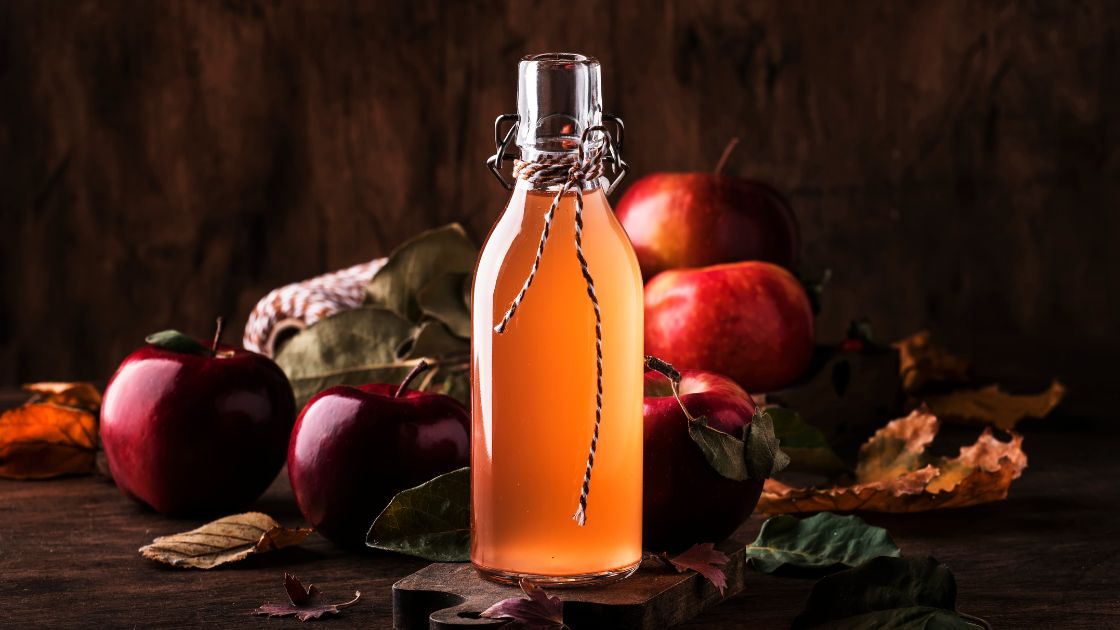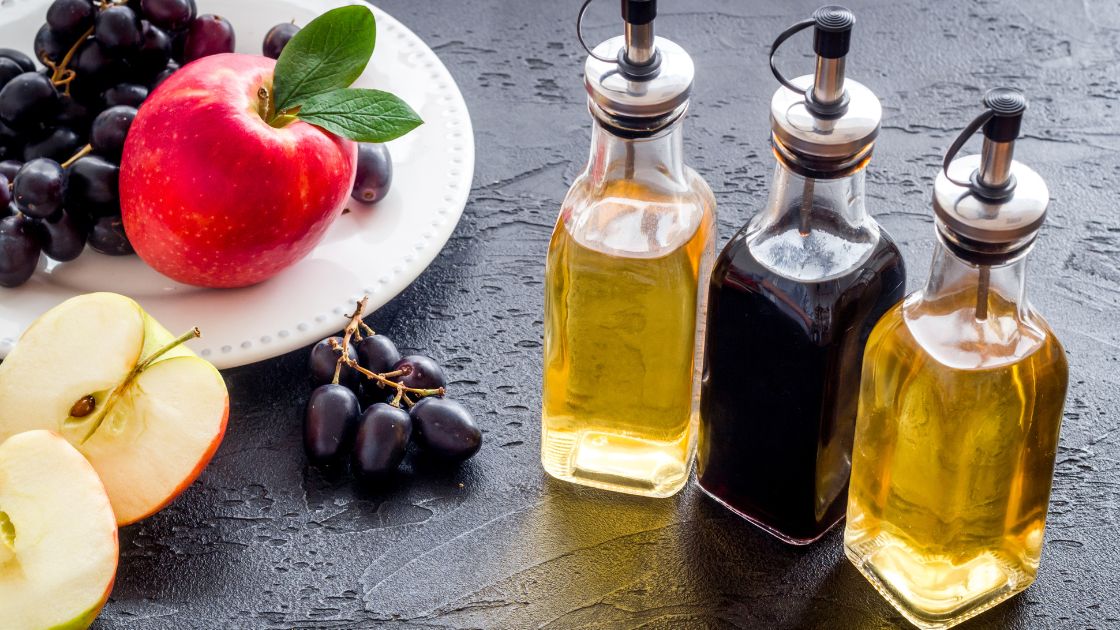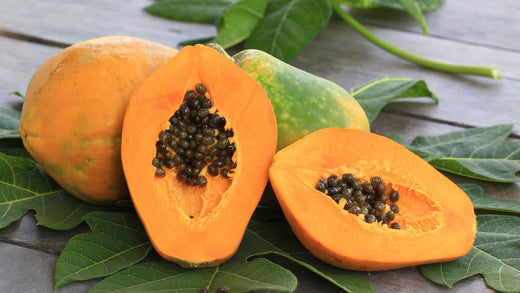
Apple Vinegar Vs Apple Cider Vinegar - What’s Right for You?
Fruit products have been known for a while because of their different advantages. Furthermore, the advantages of apples are something everybody knows. There are two separate items that can be produced using similarly beneficial apples. One is apple vinegar. The other is apple cider vinegar.
These two are many times stirred up and considered to be similar. In any case, a couple of essential components put them aside. If you want to utilise either, read this article to know about each in regards to uses and benefits to make a proper decision.
Comparing apple vinegar and apple cider vinegar
These two things are used so interchangeably that even most internet searches show one for the other. But it is important to know the slight differences between each. The main difference between the two lies in the categorisation. Apple vinegar is a much broader term. It refers to all the types of vinegar that can be made from apples. Apple cider vinegar, or ACV, refers to a particular type of apple vinegar. This is achieved through a double fermentation process. Therefore, it can be said that all ACVs are apple vinegar, but not the other way around.
|
Parameters |
Apple Vinegar |
Apple Cider Vinegar |
|
Origin |
Crushed or pressed apples |
Apple cider |
|
Taste |
Slightly sweet |
Tangy and acidic |
|
Colour |
Pale yellow or amber |
Deep amber or golden brown |
|
Uses |
Pickles, marinades, salad dressings |
Marinades, pickles, salad, dressing, haircare, skincare, health tonic |
|
Types |
Apple wine vinegar, apple balsamic vinegar |
NA |
An Overview of the differences between apple vinegar and apple cider vinegar
The following sections explain the subtle disparity that exists between these two types of vinegar.
The components and source
Apple vinegar can be any vinegar made from pure Himalayan apples, including fresh apple juice. It can also be processed or unprocessed. As a result, it does not contain the ’mother’ that is found in apple cider vinegar.
Yeast, sugar, and crushed fermented apples are the ingredients used to make ACV. It is produced via a procedure known as fermentation. There are two steps in the process. After crushing the apples, yeast is introduced to hasten the fermentation process, which turns the sugar into alcohol in a few weeks. The acetic acid that results from the breakdown of alcohol by natural microorganisms is what gives vinegar its tart flavour and aroma.
The transparent, pasteurized, and filtered variety of ACV is the most common kind seen in supermarket stores. However, unfiltered, raw ACV with hazy sediment, known as "the mother," is also available.
Taste
Apple vinegar is extracted from apple juice, so it has a less acidic and more sweet taste. On the other hand, the fermentation process gives apple cider vinegar a tangy and acidic taste. It is often diluted with water or other oils to make tonics and dressings. The presence of ‘mother’ gives it a unique flavour.
When shopping for ACV, you should always check the bottles and ingredient list to see if ‘mother’ is present. If not, it is probably apple vinegar. Between the two, ACV is a bit more acidic. However, this level is way less than other available vinegars. The acidity of apple vinegar depends on the type.
Nutritional value
Both apple vinegar and ACV have quite similar nutritional value. The former is slightly higher in sugar content since it does not go through double fermentation. But both are rich in minerals like iron, magnesium, and potassium, which help maintain health. The table below presents the nutritional quotient of ACV for better understanding.
|
Apple Cider Vinegar (100gms) |
|
|
Calories |
22 |
|
Total fat |
0g |
|
Sodium |
5mg |
|
Potassium |
73mg |
|
Carbohydrate |
0.9mg |
|
Protein |
0g |
|
Iron |
1% |
|
Magnesium |
1% |
The benefits of apple vinegar and apple cider vinegar
Both types of vinegar have similar uses. However, apple cider vinegar has a few extra benefits, which makes it stand out and more preferable. The common uses of both are:
- Salad dressings: Blend nicely with olive oil, herbs, and spices to provide a tart foundation for homemade salad dressings.
- Marinades: They give fish and poultry marinades more flavour and tenderise the meat.
- Pickling: Cucumbers, onions, and peppers can be pickled with ACV or apple vinegar.
- Baking: In some recipes, either can be added to provide acidity and aid in activating baking soda.
Also, read:
Unique benefits of apple cider vinegar
Apple cider vinegar is so popular due to its manifold advantages. These are unique to this vinegar type and are listed below.
- Digestive aid: ACV may improve digestion by boosting stomach acid formation, encouraging better food breakdown, and lowering bloating and discomfort.
- Blood sugar regulation: Research indicates that ACV may help those with diabetes or insulin resistance by enhancing insulin sensitivity and lowering blood sugar levels.
- Weight management: When combined with a healthy diet and lifestyle, ACV may increase feelings of fullness and decrease calorie consumption, resulting in weight reduction or weight maintenance.
- Antimicrobial characteristics: ACV possesses antimicrobial characteristics that can aid in the fight against pathogenic bacteria and fungi, making it beneficial for wound healing, skin care, and infection prevention.
- Skin health: Diluted apple cider vinegar applied topically can lower sebum production, lessen acne, ease irritated skin, and enhance general health.
- Hair care: Rinses with ACV can help with dandruff and scalp problems, balance the scalp's pH, eliminate product buildup, and restore hair's shine.
- Heart health: Research indicates that apple cider vinegar may enhance heart health by lowering blood pressure and cholesterol and promoting general cardiovascular function.
- Detoxification: Apple cider vinegar is frequently included in detox diets to aid in the body's cleansing and liver health and encourage the removal of toxins.
- Immune support: ACV's vitamins and antioxidants can boost immunological function and help the body fight infections and illnesses.
To experience the optimum benefits of ACV, it is essential to use good quality, ethically manufactured apple cider vinegar. You can check out Zandu’s collection of premium apple cider vinegar.
How to use apple vinegar and apple cider vinegar
Both can be consumed orally with water or through marinades and dressings. ACV can also be mixed with other ingredients to serve different purposes.
Using as a dressing
Below is a simple salad recipe using either apple vinegar or ACV in the dressing.
- Combine the ½ cup extra virgin olive oil, 1 tbsp Dijon mustard, 1/4 cup apple cider vinegar or apple vinegar, 1 tbsp honey or maple syrup, one clove minced garlic, salt, and pepper in a small mixing bowl.
- Whisk the components thoroughly to combine them. Alternatively, shake them in a well-sealed jar.
- After tasting the dressing, adjust the seasoning to your taste again. Add extra vinegar, honey, salt, or pepper as needed.
- Chop up your salad vegetables, drizzle generously with the dressing, and enjoy.
ACV as a hair mask
You can use ACV in various hair masks or mix it with water and apply it to your roots with a cotton ball. This is great to get rid of dandruff. Below is a beneficial hair mask for smooth, shiny hair using ACV.
- In a bowl, mix 4 tbsp, 1 tbsp aloe vera gel, and 2 tbsp coconut oil. Mix well until the mixture becomes emulsified. If your scalp is oily, use less oil. Lastly, add a little water.
- Apply all over hair, including roots and hair length.
- Keep for 45 mins.
- Wash off with shampoo.
- Apply conditioner.
Conclusion
Apple cider vinegar is made by fermenting apple cider. It often still has the "mother" in it, which contains good bacteria and enzymes that can be healthy for you. It has special benefits for health and cooking. Apple vinegar is a more general term for different types of vinegar made from apples. Some apple vinegar might be made differently or have different ingredients than ACV. Knowing the difference between the two can help people choose the best one for their needs. They can pick based on what they want to use it for, whether it's for health reasons, cooking, or cleaning around the house.
Do read:
- Filtered Acv vs Unfiltered Acv
- Apple Cider Vinegar vs Rich Vinegar
- Brown Rice Vinegar vs Apple Cider Vinegar
Frequently asked question
1. Can I use apple cider vinegar in place of regular apple vinegar?
Although the terms are frequently used synonymously in everyday speech, ACV refers to vinegar fermented from apple cider. In contrast, apple vinegar could be any vinegar made from apples.
2. What are the types of apple vinegar?
This can be any vinegar made from apples. Some common types are apple wine vinegar and apple balsamic vinegar.
3. Is apple cider vinegar or stronger vinegar?
White vinegar is more potent and has a higher acetic acid content than apple cider.
4. Which kind of vinegar is ideal for consumption?
ACV is ideal for drinking. It is also well-known for promoting better gut health and digestion. Some even like to drink it undiluted or combined with water.






